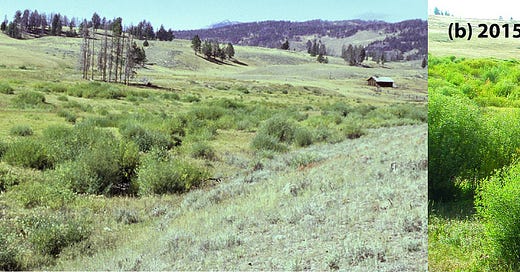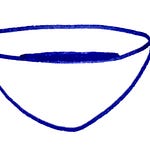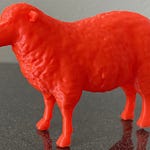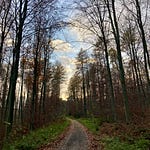My recent thoughts
Reading this will change you
- Re-introducing wolves to Yellowstone National Park balanced the ecosystem. The wolves stopped grazing animals from eating too much of the woodland by eating them. You can see the difference in the woodland below.
- I like how ecology shows the interconnectedness of a dynamic system: every part affects every other part.
- Similarly, it is cool to imagine our social lives as dynamic systems. Any interaction with someone else - whether a friend on a video chat, a long-dead author's book, or me writing this newsletter to you - will change your mind a little.
- You will think slightly differently. Perhaps you’ll speak to another person differently, which might cause that person to act differently with another person, and so on. Our social lives are extremely complex systems.
Would you rather speak to someone on the hard left or hard right?
"People are not less religious. Their religion has just moved from theology to politics" - Paul Graham
- If you had a choice of having a conversation with someone who was a stereotype of the hard political left or hard political right, who would you speak to?
- Extremes are interesting. However, if I could only choose to talk to one person of the two extremes, I would choose to talk to the person on the right.
- The person on the hard right will have similar fervour to the person on the left. Yet, I think that the politically right person would be more open about their beliefs, making the conversation more interesting.
- I say this because there seems to be a modern culture of self-censorship and self-caveat on the left. This includes forbidding yourself from saying things that might offend, trigger warnings, "acknowledging privilege", and dismissal on the basis of group identity (for example, you have X attribute, and so you can’t contribute to the discussion).
- As you can guess, I strongly dislike this restricted and censored speech. Among other negatives,1 it is boring.
Offending people
- On the topic of offence, why do we have an instinct not to offend people?
- This might have been vital in the past. If you offended your hunter gatherer tribe, your tribe could just abandon you. You and your family would then starve.
- But the instinct not to offend people seems obsolete in modern society.
- Even for people trying to win popularity contests (for example, talent show contestants or politicians) failing to have strong opinions, which would offend people, makes you bland. This is unattractive to voters.
Outro
- I am considering changing the newsletter into a podcast after week 25. Send me an email if you like the idea.
- I hope that you are having a great week :)
Tom
Some other negatives: stifling creativity, detering ideas, oppression.














Share this post